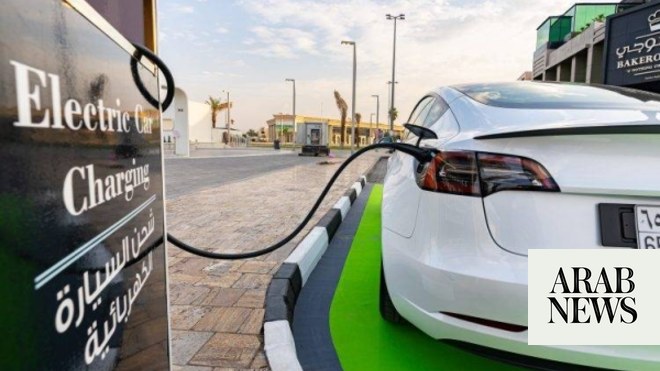RIYADH: Calling for a “practical and pragmatic” approach to address climate change issues, the Saudi minister of state for foreign affairs and climate envoy stressed the need to adopt a strategy suited to every country’s unique environment.
Adel Al-Jubeir was speaking during a panel discussion on the first day of MENA Climate Week in Riyadh on Sunday.
“Every country is different,” he added, “and each must do what is best given its circumstances, resources, and environment.”
Al-Jubeir highlighted Saudi Arabia’s adoption of a circular carbon economy approach, involving over 77 initiatives and a substantial allocation of more than $186 billion for their implementation.
The panel also featured Mariam Almheiri, the UAE’s minister of climate change and environment; Shauna Aminath, minister of the environment, climate change, and technology of Maldives; and Rola Dashti, executive secretary of UN ESCWA.
Recognizing the imperative for urgent action, they underscored the urgency of adapting to climate impacts. Panelists unanimously echoed the sentiment that the time to act is now, as the consequences of inaction are too grave to disregard.
In recent decades, countries around the world have witnessed record-breaking high temperatures, compelling scientists to confront the harsh reality of global temperature escalation. The global average temperature is on an upward trajectory, approaching the perilous threshold of 1.5 degrees above the historical average.
The Middle East and North Africa region, already grappling with arid landscapes, water scarcity, and extreme temperatures, is now confronting a mounting crisis in the form of climate change. The urgency to adapt to these climate-related challenges has never been more acute. The MENA region faces a convergence of climate-related challenges that imperil its economic stability, societal well-being, and environmental sustainability.
Panelists were of the view that by addressing vulnerabilities, seizing opportunities, and fostering regional collaboration, countries in the MENA region can pave the way for a more resilient and sustainable future in the face of climate change.
Speakers said adaptation is no longer an option and called for increased collaboration to confront the challenges posed by climate change. They stressed that collaborative initiatives and international support are indispensable in bridging resource gaps. Moreover, comprehensive data and research are urgently needed to better understand regional vulnerabilities and inform effective adaptation strategies.
Discussing the broader aspects of sustainable development, co-action, equity, and economic growth, Al-Jubeir emphasized that addressing climate change issues must be “practical, pragmatic, long-term, sustainable, a whole-of-government approach, and a whole-of-society approach.”
He also mentioned the launch of the Middle East Green Initiative, designed to foster regional multilateral collaboration in combating desertification, and tree planting, and supporting other countries in adopting a carbon economy approach.
Emphasizing the importance of various sectors in mitigating climate change effects, Almheiri pointed out the need for international collaboration to achieve the region’s goals.
“Every country possesses its unique resources and strengths,” she noted. “The purpose of COP(28) is to bring all parties together to collaborate and address a cause that affects us all in diverse ways.”
The Paris Agreement, which aims to limit temperature increases to 1.5 degrees Celsius above pre-industrial levels, recognizes the need to significantly reduce the risks and impacts of climate change. However, more than one-fifth of the world’s population already resides in regions where warming has exceeded 1.5C during at least one season, with a disproportionate impact on disadvantaged communities.
A 2023 analysis by the World Meteorological Organization indicated a 66 percent likelihood of annual average global temperatures surpassing the 1.5-degree Celsius threshold for at least one year between 2023-2027.
Low-lying islands and coastal nations, like the Maldives, are particularly vulnerable to climate change impacts. The Maldives faces challenges such as rising sea levels and water contamination, exacerbated by its low-lying geography. Saltwater intrusion into freshwater sources has forced the nation to rely on desalination plants for safe drinking water.
Shauna Aminath emphasized the gravity of the situation, stating: “With any temperature increase, it threatens the survival of our coral reefs, which serve as our islands’ primary protection.”
She further highlighted the contamination of freshwater sources on many Maldivian islands, necessitating significant investments in desalination plants, a costly endeavor for the nation.
While discussing the challenges in financing such adaptation projects, Aminath stressed the need to prioritize adaptation efforts. “We can’t secure enough finances to compensate for losses and damage. For small island nations like the Maldives, adapting and investing in adaptation are the only paths to survival.”
Estimating the global cost of losses due to climate change is challenging, but projections indicate that it could reach trillions of dollars per year by the end of the century.
In the Middle East and Africa, where freshwater is scarce and has a significant impact on food, agriculture, and water sectors, effective management of the food-water-energy nexus requires an integrated and holistic approach to resource governance.
Dashti underscored the importance of enhancing water diplomacy to ensure better water security and stability in the region. She pointed out that despite adaptation being a regional priority, the majority of financing received focuses on mitigation rather than adaptation, creating a significant mismatch in funding.
Based on the National Determined Contributions requests of 18 countries, there is a pressing need for $130 billion for water-related projects in the region, yet only $7 billion has been allocated in the last decade.
Despite the challenges with adaptation financing, the MENA region is witnessing promising collaborations and initiatives to address climate change adaptation. Some countries are implementing integrated water management plans that combine efficient water use with desalination technologies and wastewater treatment.
Additionally, various climate action projects explore renewable energy solutions, the restoration and protection of critical ecosystems like wetlands and mangroves, and innovative practices like fog water harvesting to enhance resilience to climate impacts and sequester carbon.



Leave a Reply